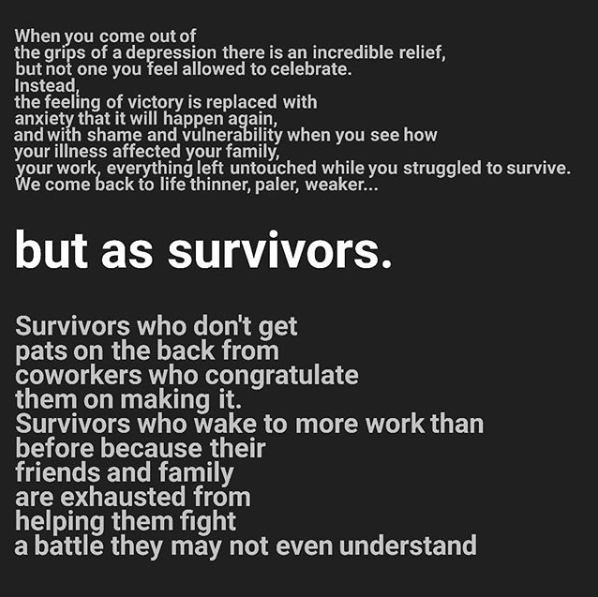
None of those questions are comfortable to hear from your spouse or another loved one, but they can be particularly hard to bear if you are suffering from depression. Depression affects many individuals and families in debilitating and sometimes even devastating ways, but one of the most difficult things about it is that it is so highly personal to each person who suffers from it — and such a mystery to many of the people who do not. Explaining depression to a spouse can be hard. It can be frustrating. It can be embarrassing. And it can dredge up feelings of shame or failure, especially when you are trying to explain why you feel the way you feel — which you may not even know — or if you have contemplated suicide. Just as there is no one-size-fits-all explanation for how people experience depression, there is no one single perfect method for how to explain depression to someone. Some people prefer to have a face-to-face conversation, and others are more comfortable writing a letter or email. But the important thing to remember is that making an effort at explaining depression to others can help them understand the way you feel, and it can help them know how to best give you love and support as you work through your mental illness and seek help for it.
Open the Search Form. About 16 million people have depression every year in the United States. Anyone can get depressed.
In children and adolescents, the. Depression affects people in different ways and can cause a wide variety of symptoms. Go easy on yourself.
Helping a friend or loved one with depression can be challenging. For many people with depression, the symptoms are severe enough to cause problems with day-to-day activities e. If someone in your life has depression, whether or not that person has a diagnosis, you might feel at a loss for how to best support that person. The most important step toward helping a loved one with depression is to understand the symptoms. The course of major depressive disorder is variable, and symptoms vary from person to person. Familiarizing yourself with the possible symptoms will help you better understand what your loved one is experiencing. Take one of our 2-minute Depression quizzes to see if you or a loved one could benefit from further diagnosis and treatment. The essential feature of a major depressive episode is a period of at least two weeks marked by either depressed mood or loss of interest or pleasure in nearly all activities. In children and adolescents, the mood is more likely to present as irritable than sad.
